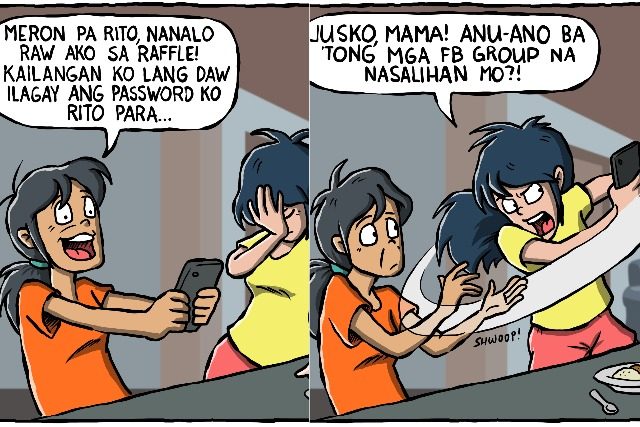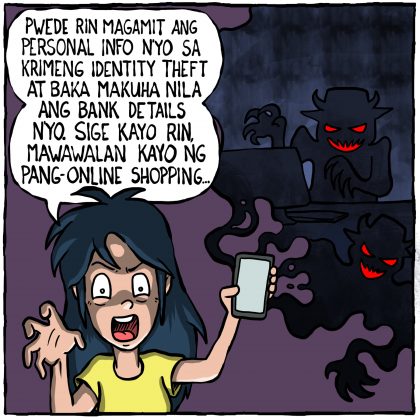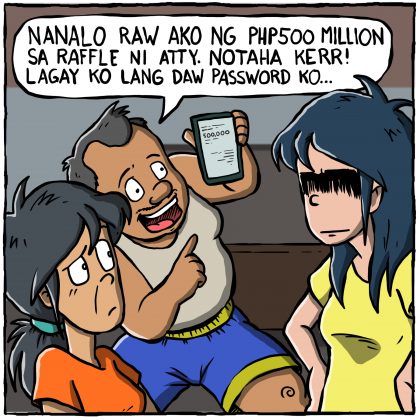
A non-government organization is raising awareness on common online scams such as dubious raffle promos and surveys.
The Foundation for Media Alternatives released these comic strips made by one of its members named Kapitan Tambay on August 25.
The comic strip follows the girl’s parents informing her about her online activities.
Her mother received chat messages from random strangers who added her to some suspicious group pages.
She told her daughter about raffle prizes she did not join, surveys and requests for passwords, all of which are common cybercrime schemes.
Her father later also told her that he won some sketchy prize money.
The funny comics ended with the daughter confiscating their mobile devices in a role reversal many millennials and zoomers can relate with.
The FMA quipped in the post: “Sounds family ba ito sa inyo?”
The organization also cautioned the public from online activities that pose danger to their digital privacy.
“Sa madalas nating paggamit ng online platforms, hindi natin namamalayan na mayroon din itong bitbit na banta sa ating privacy. Marami na ang mga kaso ng hacking, identity theft, phishing, at iba pa ang naitala dahil sa hindi maingat na pag-access sa online spaces,” the FMA wrote.
“Sa komiks na ito na likha ng FMA kasama si Kapitan Tambay, makikita natin ang mga maaaring maging epekto kung hindi tayo magiging mabusisi at maingat online. Laging tandaan, never share your personal information to others!” it added.
A Filipino’s personal information is protected by several laws.
Under the Data Privacy Act of 2012, the data subject or the person whose personal information is being processed has to give consent before their data is processed or used.
Consent was specifically defined as:
“Any freely given, specific, informed indication of will, whereby the data subject agrees to the collection and processing of personal information about and/or relating to him or her. Consent shall be evidenced by written, electronic or recorded means. It may also be given on behalf of the data subject by an agent specifically authorized by the data subject to do so.”
Identity theft, fraud and other similar acts, meanwhile, are among the punishable offenses in Section 4 of the Cybercrime Prevention Act of 2012.





















